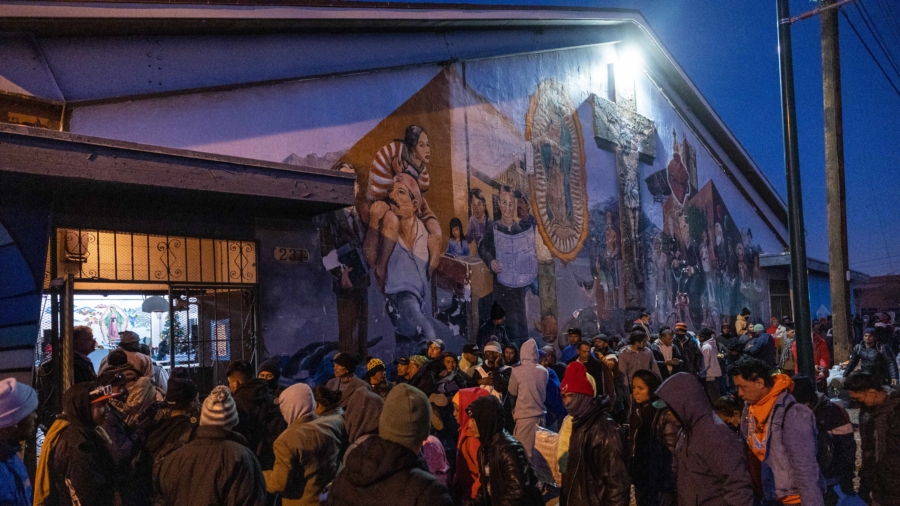A federal appeals court on Friday rejected an effort by 19 Republican states to keep in place the Title 42 border policy.
The ruling from the D.C. Circuit Court of Appeals means the policy is expected to end on Dec. 21 unless further appeals are filed by then. The states are expected to appeal to the U.S. Supreme Court.
Invoked in March 2020, Title 42 uses emergency public health authority to allow U.S. border authorities to block asylum claims at the U.S. borders on the grounds of keeping contagious diseases out of the United States amid the COVID-19 pandemic. The policy has been used over 2.5 million times to quickly expel illegal immigrants, mainly at the U.S.–Mexico border.
A federal judge on Nov. 15 ordered (pdf) the Biden administration to stop enforcing the Title 42 policy, effective immediately. The judge, U.S. District Court Judge Emmet Sullivan, a day later granted a request from the Department of Justice to delay implementing the order by five weeks, making the new deadline Dec. 21.
A coalition of 19 Republican-led states had pushed to intervene in the case and sought to stay Sullivan’s policy termination order (pdf). A total of 15 states initially sued—Arizona, Louisiana, Alabama, Alaska, Kansas, Kentucky, Mississippi, Nebraska, Ohio, Oklahoma, South Carolina, Texas, Virginia, West Virginia, and Wyoming. They were later joined by four more states—Montana, Missouri, Tennessee, and Utah.
But a three-judge panel denied their request on Friday, saying they had waited too long.
“In this case, the inordinate and unexplained untimeliness of the States’ motion to intervene on appeal weighs decisively against intervention,” judges wrote in a four-page opinion.
“Nowhere in their papers do [the states] explain why they waited eight to fourteen months to move to intervene,” the court said in its order, noting that the Biden administration had issued an order to terminate the Title 42 policy more than eight months ago.
The Biden administration had also challenged some aspects of Sullivan’s ruling, though it doesn’t oppose letting the rule lapse by Dec. 21.
White House Assistant Press Secretary Abdullah Hasan said after the appeals court ruling that the Biden administration has been preparing for the end of Title 42.
“To be clear: the lifting of the Title 42 public health order does not mean the border is open,” Hasan said in a statement to new outlets.
“We will continue to fully enforce our immigration laws and work to expand legal pathways for migration while discouraging disorderly and unsafe migration,” he added. “We have a robust effort underway to manage the border in a safe, orderly, and humane way when Title 42 lifts as required by court order.”
Louisiana Attorney General Jeff Landry expressed disappointment with the decision and said the group would appeal to the U.S. Supreme Court, reported The Associated Press.
Arizona Attorney General Mark Brnovich confirmed to news outlets that the states would appeal the ruling to the U.S. Supreme Court on Monday.
The overall case stems from a lawsuit led by the American Civil Liberties Union, which had challenged the Title 42 policy back in January 2021.
The Biden administration had tried to end Title 42 on its own in 2021, but a federal judge in Louisiana blocked the action on procedural grounds, in a separate lawsuit brought by a coalition of mostly GOP-led states. That order has been superseded by Sullivan’s ruling in November.
The Department of Homeland Security (DHS) estimates that 9,000 to 14,000 migrants could try to enter the United States illegally each day when the Title 42 policy ends. The DHS on Dec. 13 separately announced it will work to close gaps along the southwest border wall.
From The Epoch Times

